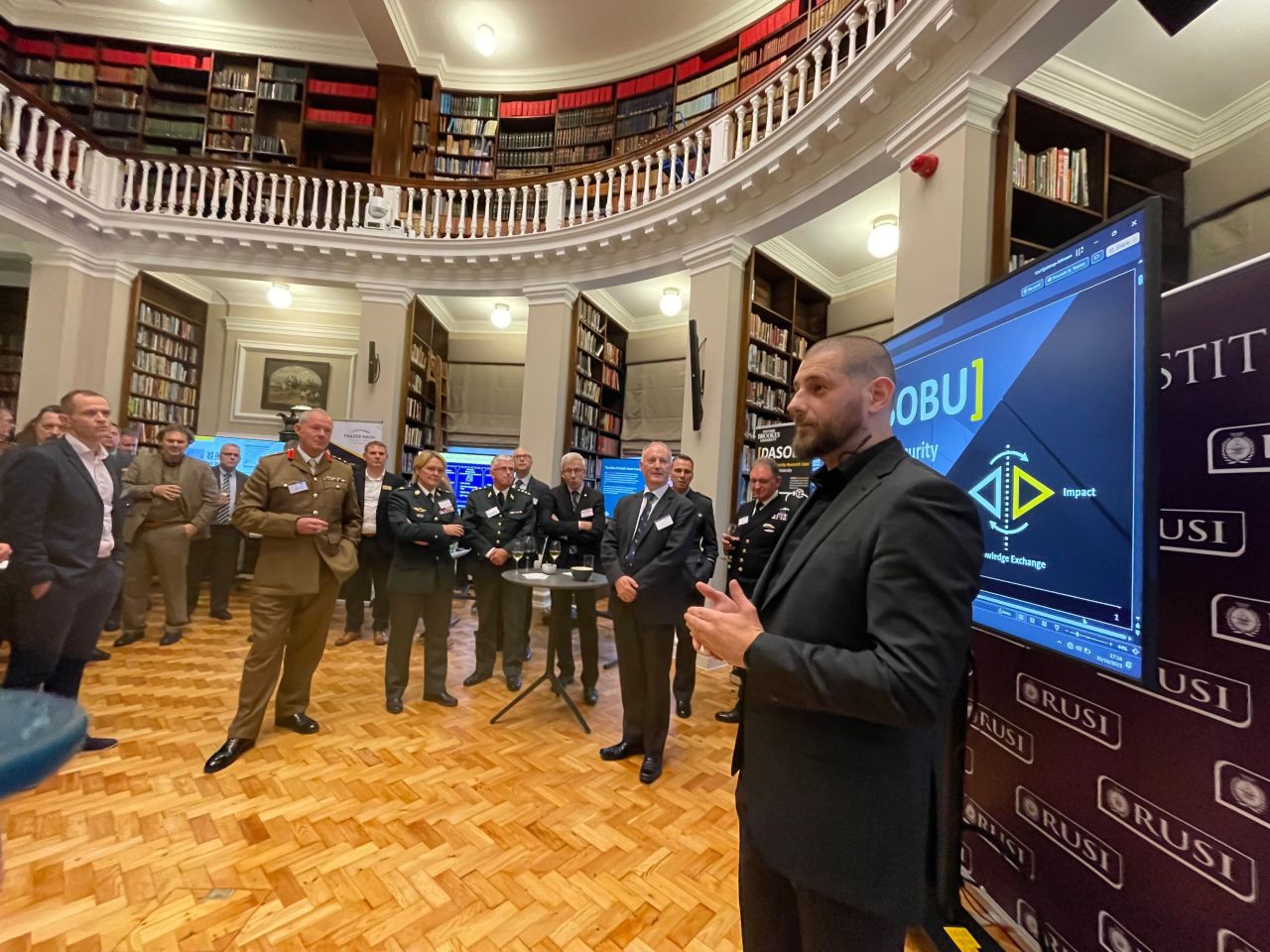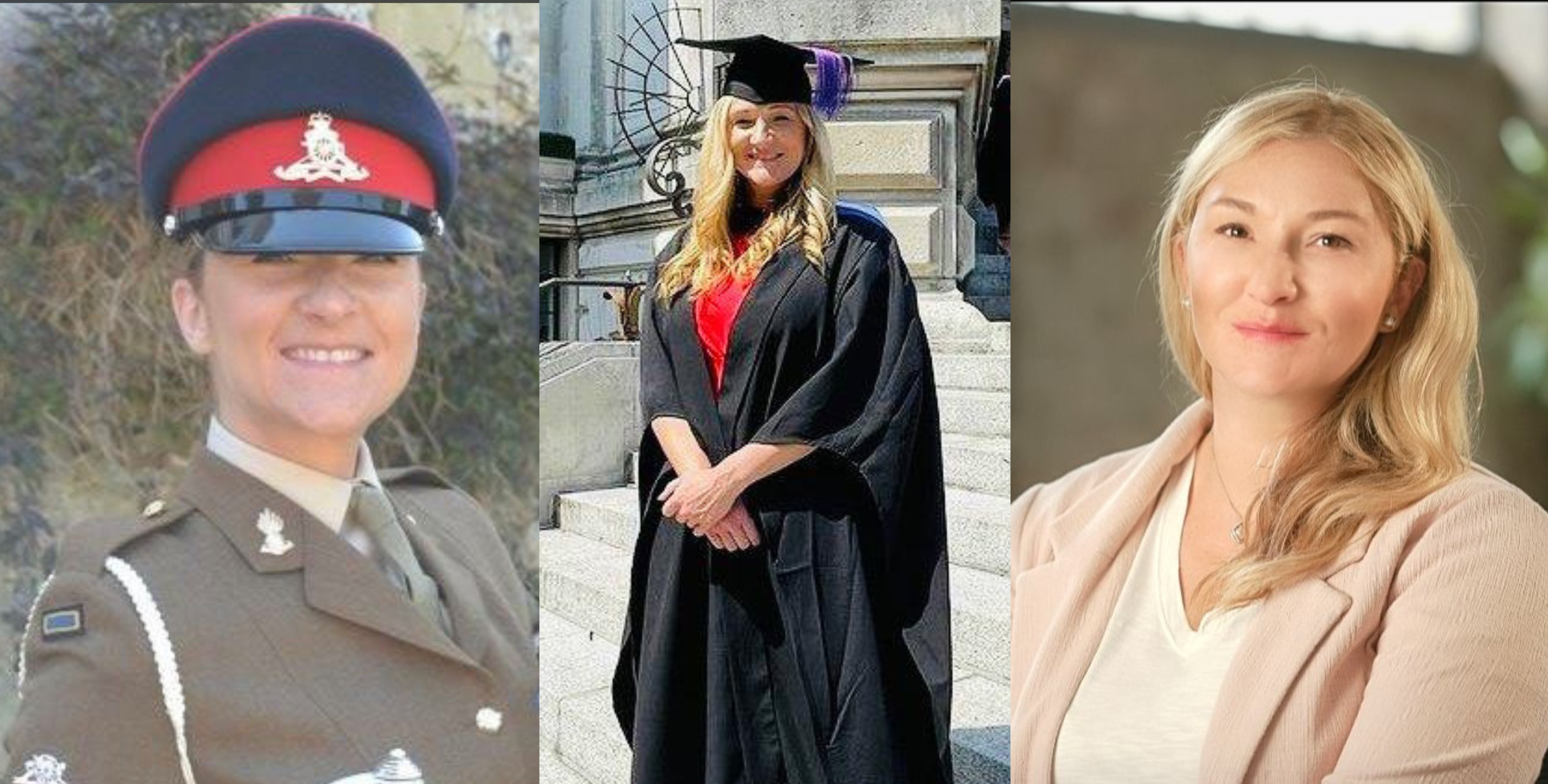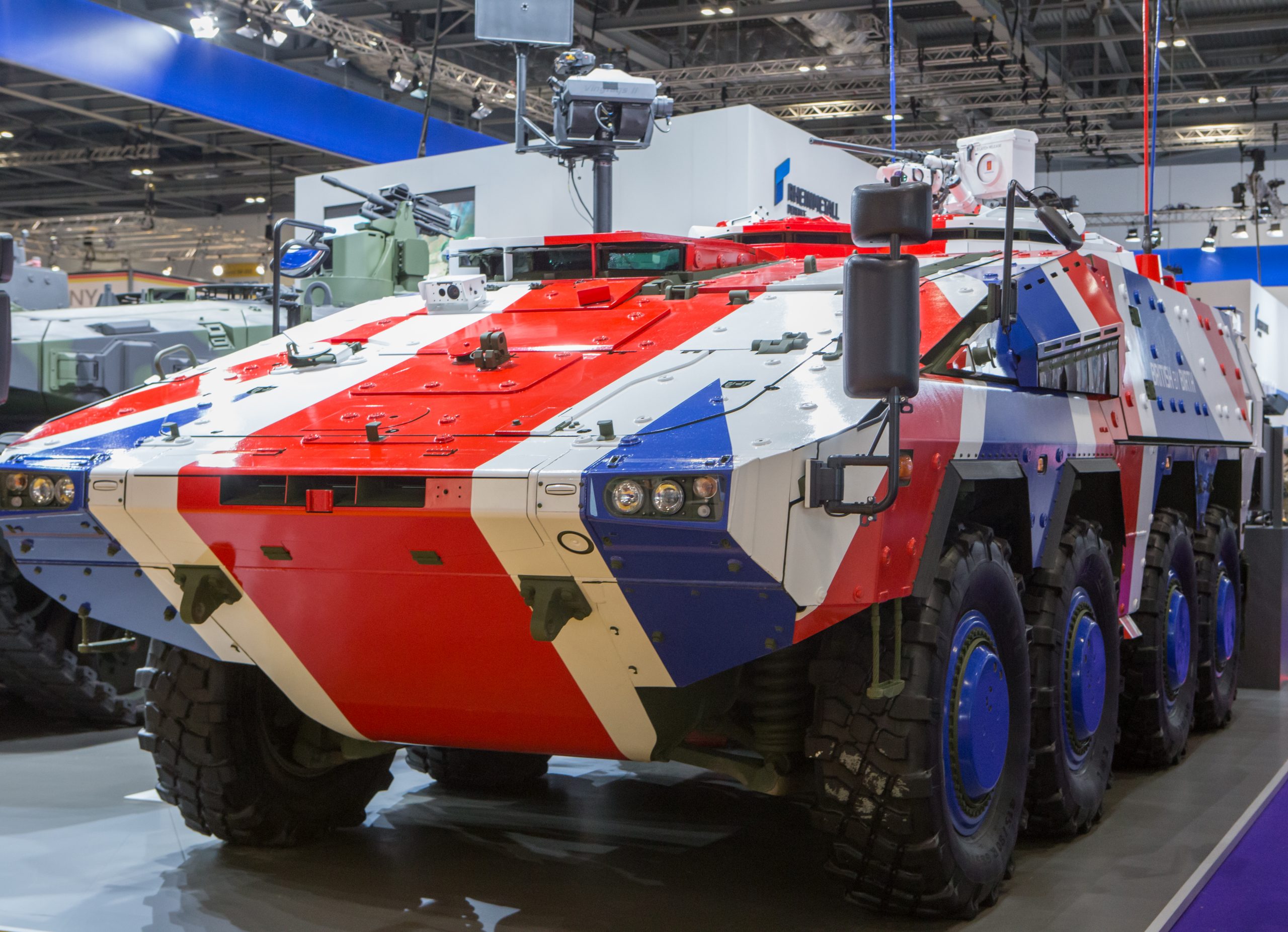The loss of talent in Security and Defence

We are haemorrhaging talent in Defence. In Industry and across the Armed Forces, some of the brightest minds are leaving never to return. The waste is indefensible, the investment in personnel disappearing over a smoke-filled horizon of ‘this is more important’, ‘we are busy’, ‘that’s not in my remit’, and ‘it’s not my fault’. Disproportionately in both the US and UK Armed Forces and Industry, many of those leaving are women. Women that ‘have had enough’ of not just being not supported or encouraged, but actively exhausted by having to fight for room in the first place.
Last week there was a senior meeting of the UK Military, to address the issue of treatment of women, both in, and by the armed forces. The statement that came out acknowledges that there needs to be a culture change. There also needs to be one in the reflected industry. For 25 years, I have worked in Defence, Military Simulation, Training, and Education. Let’s get the ”boring”1 bit out of the way – during that time I have been sexually assaulted, threatened with rape, verbally assaulted, looked over, demeaned, patted, talked over, reported for being ‘unladylike’ (I ate a bunch of chocolate at my desk and wore trousers – The horror), called names, rubbished (with gender reference) behind my back, sent sexually explicit messages, DM’d abuse and more. The worst of this all in the 21st Century. This is by both industry and armed forces colleagues. I’m still here. How? Why? It is because I passionately believe that I can contribute in a positive way to the challenges faced by our Defence forces and Emergency Services. Also, in the practical knowledge that a lot (not all) of this is and was from older men, who would have to retire one day…
I have remained positive and optimistic throughout my career, and I always look to network people together, where I can, to help solve issues peer-to-peer. I’ve also been publicly silent. Many of you that I’ve worked with over the years will know some of the events, but not all. In later years, some of you have written to the senior people in organisations where I’ve reported a problem, and that is how it should be. I’ve been silent in public because it’s always the consideration about how this will impact on my career, even now, owning my own company. How people will engage with me (life, not that woman again – though some will be doing that already!), how it will affect my business and my team.
But I’ve had enough. It is exhausting being one of the 2% of Women in the Defence Industry, in a role other than support. It’s not just the ‘big’ incidences, it’s the wearing away that constant biases and microaggressions cause. I went to an industry meeting last week, it was a good meeting, but again I was a part of just 4% of women (big day!) and there were gender issues that I could have raised, relating to women, but decided to do it on an individual basis to avoid the virtual eye-rolls. #MeToo made it possible for women to speak up, but not in all environments. There is still the lingering waft of misogyny throughout the business, and we combat that every single day. Yes, really, every day. It is systemic.
So why women anyway? Why include us? Why be proactive about employing female talent? Why listen to us, and I mean really listen, not just hear? We are talented. Without us you wouldn’t have the business growth that you do. Without us you wouldn’t have different and innovative ways of thought and action. Without us you won’t be as successful in Operations or Training. Diverse teams produce better results. The research is clear.
There are recent reports on women in the armed forces and the additional challenges that they face, see the latest from the UK Gov Defence Sub Committee, The NATO STO summary of research carried out over more than a decade and more. The detail, as expected, is pretty horrific, BUT the vast majority of women working in the armed forces and defence, myself included, still want to be here and love what we do. Moreover, we are passionate about what we do, being the very best that we can be and truly striving for excellence. We just don’t need the harassment and additional work/energy required to just even be here.
Many women have bravely stood up time and time again with words to explain and report what is happening. Many, many more haven’t because of so many fears and reasons. That they will be dismissed, scared of losing their job, promotion, their reputation, future engagement…it’s endless. All of these women are toughened and scarred by their experiences, but we still do what we do, and we do it amazingly.
Words now need to turn into actions. How about instead of ‘being allowed’ into an area, we are ‘welcomed’. Instead of not being considered, we are asked. Many of my fellow female professionals and I have talked over the years about how it is always up to the woman in the room to notice and raise issues that affect women. Those issues will affect many men as well, but if it is a ‘female’ issue, eg: Childcare, flexible working, visibility, kit or clothing that fits (or rather doesn’t), then it’s usually down to us to flag this.
Some of this is addressed in the Women in the Armed Forces: Recruitment to Civilian life (Atherton Report), issued by the UK Government Defence Select Committee, (represented by two women on a board of eleven), who apparently had to have it “explained to them” that “many women have a perception that the Army is a male-dominated organisation”. Now you can insert all of the swear words here. ‘Perception’?! It’s the reality – not good or bad, just the actual fact! I’m not going to give a full analysis of the report here, just to say that it is shocking that so much of what is quoted, apparently comes as a surprise to anyone. Also the recommendations fall short as they all target changes on women, and overlook systemic changes such as educating men in the Armed Forces and changing the culture by including them. “Contributors highlighted the cumulative effect of biases and experiences for an individual’s sense of belonging, with one servicewoman describing simply being “worn down”” It’s worth repeating – it’s systemic and ingrained. The ‘tiny’ adjustments that we constantly make, mean that we can’t perform to our absolute best and have our talent shine. The UK MoD has announced this week that it will publish a response to the Atherton report on Tuesday 29th November. We await with hope. Whatever the outcome, there is a lot of work to do on providing an environment for women in defence that is equitable and enables our talent to flourish.
I once briefed a room full of serving officers on Simulation & Training and mentioned that at our conference there is flexibility in start time and that if they needed to bring their children for any or all of it, then we could help to arrange childcare. We worked with a local provider so that delegates could attend and have their child in a local nursery. This meant that they were able to attend the full conference and do parental duties. The people who took this up were all men. One mid-ranking officer came to me with tears in his eyes afterwards to say what a huge relief it was to experience this and that his (all male) team didn’t understand the guilt and stress he felt at putting his child into nursery for 07:30, just so he could make morning prayers at 08:00.

90% of male mid-ranking officers are parents, and just 10% of female mid-ranking officers are parents. This means that either women in the Armed forces choose not to have children because they don’t want them, valid choice, or they choose not to have them because it will affect their career and promotion, or they leave once they’ve had them, because the system does not value women officers enough to enable them to remain in their job, be a parent, and feel like they can perform to their full potential. That’s simply unacceptable. Let’s flip it. Let’s ask all serving male officers to take a full 9-months of paternity leave and then tell them that it affects their promotion chances because they have been out of the job for too long and how on earth are they supposed to be able to come back in at the same or higher level (as the men) because they have missed work and are now ‘behind’. (This was actually said to a serving female friend of mine). At least if this happened in industry there would be a collective ‘WTF’ and a tribunal. Well, probably a ‘constructive dismissal’ where the woman gets paid off to be quiet and we don’t talk about it ever again. Except here we are talking about it.
So, why have I talked so much about women in the Armed Forces? Well, the Defence & Aerospace Industry draw much of their human resource from those exiting the Armed Forces. Most especially for the roles of Business Development, Sales and Senior Management. If there are far fewer women of seniority leaving, then there are far fewer for industry to employ. The reality is far worse, I could name a thousand male individuals that have come into the industry from the Armed Forces, but only a handful of women doing the same. At least in the Armed forces we have an average of 12% of the force being women, whereas their senior opposite numbers in industry manage a pathetic 2%.
The figure of only 10% of female mid-ranking officers being parents, definitely has something to do with this. Women are either leaving the Armed Forces before becoming senior, to have children, and then are not easily accessible (around the bazaars) for industry to engage with and employ, or they’ve just had enough of the environment and have gone off to have another career, somewhere that is much more welcoming of their talent and providing an environment where they can thrive as a parent or an individual. So we have to do better as an industry that desperately needs talent, to be that working environment. If the support for single parents or women being the main caregiver, does not exist in the society around us, then it’s up to us to pick that up. Caregiving is an important word here, because as women become more senior, and those that are parents have their children leave home, frequently they are often the ones that then become the caregiver for aging parents and move to accommodate them, or go part-time, or leave completely because the accommodation for flexible working is either not there or as a part-time employee their career prospects are dismissed by industry. 72% of all registered carers are women. 60% of all unpaid carers are women. 20% of women care for both their parents and their children. The Office of National Statistics (ONS) shows that women carers are also working part-time, 3 times more than their male peers.
Now I’m not proposing that we are solely responsible for changing all of society to create equality for women (although that would be amazing), but we have to sit down and really examine what the reality is for working women in our organisations. That means including us in the conversations – asking us as a start. The pandemic has exposed a lot of working practices that are possible, that include men and women, and the work is still there. Deliverables are still delivered. Sure, there are times when a team meeting or face-to-face is really needed, but not to the detriment of the health and welfare of defence staff – serving or industry. We need to hold on to this learning, so that the talent that needs this way of working, joins us, and thrives. Why do we not have nurseries at all MoD main sites and schools? Why do we not have nurseries at ‘Prime’ industry offices? And I don’t mean privately provided by a third party, where the costs are prohibitive (Often £1,000+ pcm). More than 400 nurseries have closed in the UK this year with more than a third of these in the most deprived areas. This disproportionately affects women. Junior ranks even more so, where wages don’t cover nursery fees and a second job is out of the question.
Cultural challenges include ‘Banter’ – banter can be awesome. I will happily engage in some battle badinage! It’s worth repeating though, that it’s never banter when the receiver feels humiliated, targeted or broken. That’s bullying. Let’s do better. I know from conversations with female colleagues, that some think adjustments are difficult and that they have to accept the system. I mean both systems – serving and industry, but as I’ve matured it seems that a lot of this is down to the very training and onboarding that assimilates us and makes us think that we are the problem to solve and not the environments around us. It’s almost like being groomed to accept that this is the way things are, and we cope despite the challenges, and not thrive like we should. At least the days of ‘what to wear’ by your boss in industry are over, e.g. ‘He’s a tits man, could you get the girls out?’ for a different customer "Legs. He loves legs." Not to trivialise, but I met these suggestions with Paddington Bear hard stares, and wore trousers anyway (got reported to HR for being unladylike again)
I, and my sisters in industry and the armed forces, could write a thousand books on the incidences of harassment, abuse, and misogyny that abounds. We could also write another thousand books on the brilliance of being in this community and the wonderfulness, hilarity, and support that we have also all experienced.
If you are a woman in this space and need someone to reach out to, or if you are a woman facing or processing any of what I’ve written about, and maybe just need a cup of tea or a bucket of wine – here is my hand.
I promise to keep reaching back to those coming behind me and out to those around me. If you are a man in this space and you need someone to talk to about this, how to advocate for or how to change the culture around you, I’m here for you too. If you are non-binary, trans, gender-nonconforming – here is my hand. For what it’s worth, we all need to pull through together, with real ambition to make the most of all of our talent, before we lose more of it.
My Grandmother, and wonderful friend, was a Suffragist – her fight makes me not take my right to vote for granted (I vote every single time). I don’t want to be thanking people for including us, I want to be celebrating it.
I have only just scratched the surface of everything that happens and needs to be fixed. I have not addressed the additional biases visited upon women of colour, women with a disability or chronic illness, women going through any female-health issue, like the menopause, and I invite a challenge. I also expect those that challenge may not understand or accept my own, and collective lived experiences, detailed in the reports highlighted. So, it will take time. What matters is that this is the beginning. The beginning of us doing better, not just expelling talent, but retaining it. And let me be the one to say it, because it is written underneath every post that focuses on women, yes men too. This is important because the changes that need to happen, far from excluding men, means that they will benefit too.
Inclusivity isn’t hard*. It just needs to be done. We are losing talent, and that is to the detriment of us all.
Now with the future in mind let’s move to ‘Attracting and Developing Talent in Security and Defence’. To that end here is a survey for women in the armed forces, women in the defence industry and female veterans. The focus is on the future and what should and can be done to change things. Then let’s write that up!
*From all of my reviewers, Inclusivity IS hard! Certainly, the current practice demonstrates that.
Ends.
Tess Butler, CEO at Ruddy Nice & DSET
1 A direct quote from a male colleague in the industry when discussing the sexual assault and abuse of women in the industry and serving personnel.



